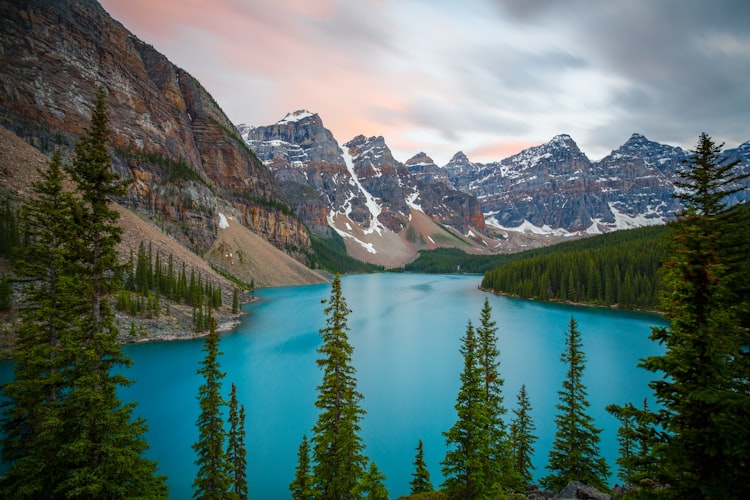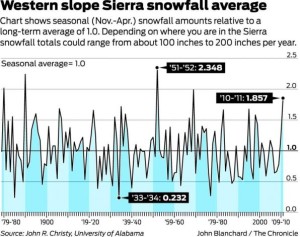
Earth Day Special - Responding to Reader's Comment On Global Warming
Today is Lenin’s birthday ‘celebrated’ as earth day around the world. It is a good time to revisit our earlier commentary on global warming. Reader Anthony Staines commented -
Hi,
You are missing the point they are trying to make. ICCP are asking the question what will happen if we put more CO2 into the atmosphere.
The models used have two elements, first, how is the climate likely to respond to a change in CO2 from present levels this is the climatological question; and second, what are some plausible future scenarios for CO2 emissions this is, as you rightly say, mainly a question of economics. The key scientific content is in the first part, but the second part is the key policy content,
If, for example, we de-carbonised our economy over the next decade, then the ICCP forecasts of CO2 emissions would be falsified, bu the climate response to CO2 would probably not be.
Regards,
Thank you for your thoughtful comment Anthony. Actually, the fact that global warming forecasts 50-100 years from now are highly dependent on economic forecasts over the next 50-100 years is not well appreciated. Based on our best understanding of the models, if we plug in 0% economic growth over the next 50 years, the warming should go away. Is 0% growth realistic? In our opinion, we will be lucky to get that rate of growth given our debt-saturated starting point.
Getting to the larger context,’global warming’ arguments have three parts -
(i) show that temperature of the earth has been going up dramatically over the past 30 or 50 years,
(ii) show that the rise in temperature is causally linked to increasing amount of atmospheric carbon dioxide and therefore human activity,
(iii) predict global climate 50 or 100 years from now and show that there will be certain disasters due to impact of continually increasing human activity.
Even though each component has very high level of uncertainty, that is being masked by promoters of ‘global warming’ for political reasons. John Cristy explained how it worked in this BBC interview.
At an IPCC Lead Authors’ meeting in New Zealand, I well remember a conversation over lunch with three Europeans, unknown to me but who served as authors on other chapters. I sat at their table because it was convenient.
After introducing myself, I sat in silence as their discussion continued, which boiled down to this: “We must write this report so strongly that it will convince the US to sign the Kyoto Protocol.”
Politics, at least for a few of the Lead Authors, was very much part and parcel of the process.
The entire interview is worth reading to understand how much of the ‘global warming’ argument is based on science and how much on politics.
Can the scientific process itself be biased? If anyone had any doubt, that should be settled by Sean Eddy’s shameful behavior after ENCODE debacle. Getting back to the topic of global warming, John Cristy recently published a study on snowfall in Sierra.
Snowfall in the Sierra Nevada has remained consistent for 130 years, with no evidence that anything has changed as a result of climate change, according to a study released Tuesday.
The analysis of snowfall data in the Sierra going back to 1878 found no more or less snow overall - a result that, on the surface, appears to contradict aspects of recent climate change models.
John Christy, the Alabama state climatologist who authored the study, said the amount of snow in the mountains has not decreased in the past 50 years, a period when greenhouse gases were supposed to have increased the effects of global warming.

Rather than highlighting his study as ‘definitive proof against global warming’, we would like to highlight how how his kind of results are being filtered out by journals. Check the comment of Roy Spencer -
Roy Spencer says:
February 18, 2012 at 3:18 am
Side note: It took a long time for John to get this paper published because of one reviewer who didnt even understand how snow depth is measuredbut who was obviously convinced Christy must be wrong because the results did not fit the AGW narrative. Journal editors MUST start becoming a little more discerning about whether a reviewers comments are justified based upon the content of a paper. Of course, that would require an editor to read and understand a paper, and I agree thats a lot of work for someone who has volunteered their time to become a journal editor.
Do that year over year for twenty years and you can find ‘consensus’ on any junk scientific notion. Scientific consensus itself is an oxymoron, because science makes big leaps through ‘paradigm shifts’ and not ‘consensus’.